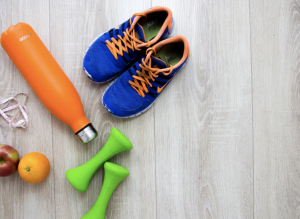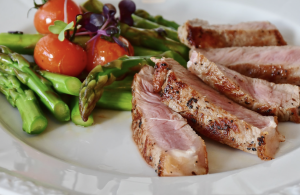
Workout Nutrition: What and When to Eat?
Workout Nutrition: What and When to Eat?
Those who are on their endeavour to build muscles for athletic performance or living a healthy life should realize the significance of food. Here we are speaking of workout nutrition before, during, and after the training sessions that make a huge difference. Energy, sweat, fatigue, muscles soreness, will come with every session. How to build up and regain strength pre-workouts and post workouts, respectively?
Photo by Gesina Kunkel on Unsplash
Nutrition has a significant impact on your efforts. To achieve the best results, you need to follow a thorough nutrition regime. Let’s explore the workout nutrition for different sessions to help channelize your energy and perform better. Primarily, pre-workout and post-workout nutrition need more focus.
Pre-workout Nutrition
What to eat depends on the type of workout and individual targets. Dieticians suggest a balance of carbohydrates and proteins that form the macronutrient compounds our body needs to perform its best.
Carbohydrates
You should not skip carbs as they are the stimulant for your muscles. These are the body’s fuel source. But every bit of carb intake should be put into use an energy source to no allow storage of fat. Those who engage in cardiovascular and resistance training sessions need carbohydrate intake before the workout. Research at the University of Sydney in Australia especially recommends carb intake is necessary to improve endurance exercise performance.
Complex carbohydrates are preferable as they facilitate consistent energy for a long period. Also, these are low in glycemic index scores, which means complex carbs are not likely to cause risks of type 2 diabetes by maintaining the blood glucose levels.
Foods that contain complex carbohydrates are broccoli, beans, lentils, oats, brown rice, and whole-grain bread.
You can eat 2- 3 hours in advance for complex carbohydrates and larger meals.
Photo by Pixabay from Pexels
Proteins
Not all proteins, but specifically whey proteins can produce better results as these contain branched-chain amino acids (BCAAs). These sources help boost muscle growth and improve workout performance. Lifting weights can lead to small tears in muscle fibres. Consuming sufficient whey protein will help increase amino acids in the body, which will consequently reduce wear and tear, make muscle, and encourage growth.
There are several natural food sources providing whey proteins such as beef, chicken breast, eggs, cottage cheese, and yogurt.
If it includes snacks, 30 minutes to 1 hour before a workout is the ideal gap to maintain.
Make sure you drink plenty of water before hitting the gym. An ideal amount is two cups of water, 2-3 hours pre-workout and one cup 10-20 minutes before. Also, keep yourself hydrated every 15-30 minutes of extreme exercises. Depending on the body weight, you can consume 5-10 millilitres of water per kilogram 2-4 hours pre-workout.
During Workout Nutrition
Most of us may not work out extensively every day. The sessions are kept short, probably half an hour or so. You can skip adding extra fuel while doing the workout for a short time. If it lasts for 45 minutes or less, hydrating with water or another form of fluids is sufficient.
For those endurance sessions lasting for 2 hours or more should include more carbohydrates to enhance the muscle glycogen. Quinoas, banana, oranges, apples, raisins are some good sources of carbs you can carry along to consume during workouts.
Dieticians recommend including 30-60 grams of carbs every hour for exercises lasting more than 75 minutes. You can have a handful of raisins (28 grams) or 1 medium-size apple (25 grams) or banana (27 grams).
Post Workout Nutrition
After the workout, rely on protein to supplement tissue repair and growth. Fluids, protein, and carbohydrates come for rescue again. Our body continuously breaks down proteins, uses all the stored energy, and loses water through sweat after rigorous exercise. Post-workout, you need to restock all the nutrients you lose. An ideal suggestion is to include carbs and proteins within 1-2 hours after the workout, and the immediate supply of fluids.
Rehydration
You are going to sweat a lot, so even before eating anything, rehydration is much important. A study suggests drinking fruit juices like watermelon, and cherry juice can help reduce muscle pain due to heavy exercising. Fluid intake depends on length, strength, season (summer or winter), and individual structure. You can mix the normal water with fruits like orange to add a little carbohydrate.
image source: Unsplash
Some tasty and hydrating post-workout drinks are:
- Chocolate Milk: The drink will provide electrolytes to balance the water in your body, carbohydrate to replace glycogen.
- Coconut Water: A study supports drinking coconut water can assist in post-workout recovery. It is a good source of antioxidants and nutrients. Coconut also contains less sodium comparatively to sports drinks.
- Tart Juice: To recover sore muscles, a source rich in antioxidants would be tart juice. It will help reduce inflammation and assist muscle recovery by decreasing the damage and prevent strength loss.
Protein: If you are undergoing intense weight training, an extra bit of protein will favour your muscle-building goals. For how much intake would work best, you can consume 1-1.2 grams per kilogram of your body weight. For instance, 15-20 grams of protein can help restore glycogen and support protein synthesis. A list of few rich sources of protein-
- Boiled Egg (6 grams)
- Chicken breast/100 grams (33 grams)
- Turkey/100grams (23grams)
- Tofu/100grams (17grams)
Also, you can take supplements like Anavar, which can help increase energy and help build muscle mass.
Carbohydrates
Carbs that digest fast also have their benefits to refill glycogen, balance blood sugar, and help quick recovery. Since the fuel of blood sugar and glycogen is low, creating a balance in its levels should be your priority. Nutritionist recommends to include 50-75 grams of high-glycemic carbs after your workout. Post 30-60 minutes you can much on to carb sources to regain energy and help recovery.
Before planning for an exercise regime, also familiarize yourself with what to put in your body that can assist in achieving your fitness goals. For athletes, never try something new on the day of your competition day or any performance. It is always best to experiment during training to understand what works best according to your body metabolism, weight, and exercise plan. Your experience will be your best guide.

















